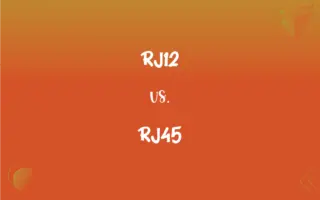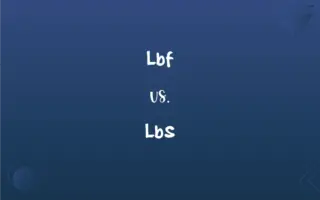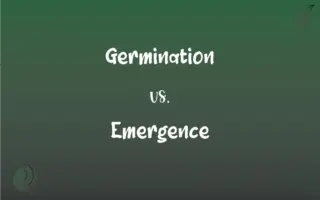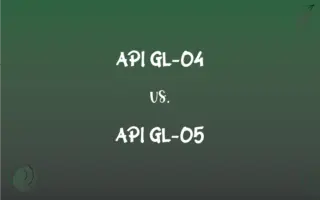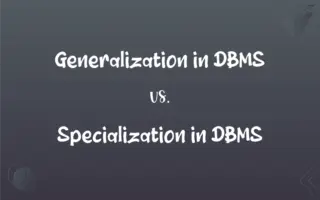Unitary Government vs. Federal Government: What's the Difference?
Edited by Aimie Carlson || By Harlon Moss || Updated on October 2, 2023
A unitary government centralizes all governing power in a single body, whereas a federal government distributes power across national and subnational entities.
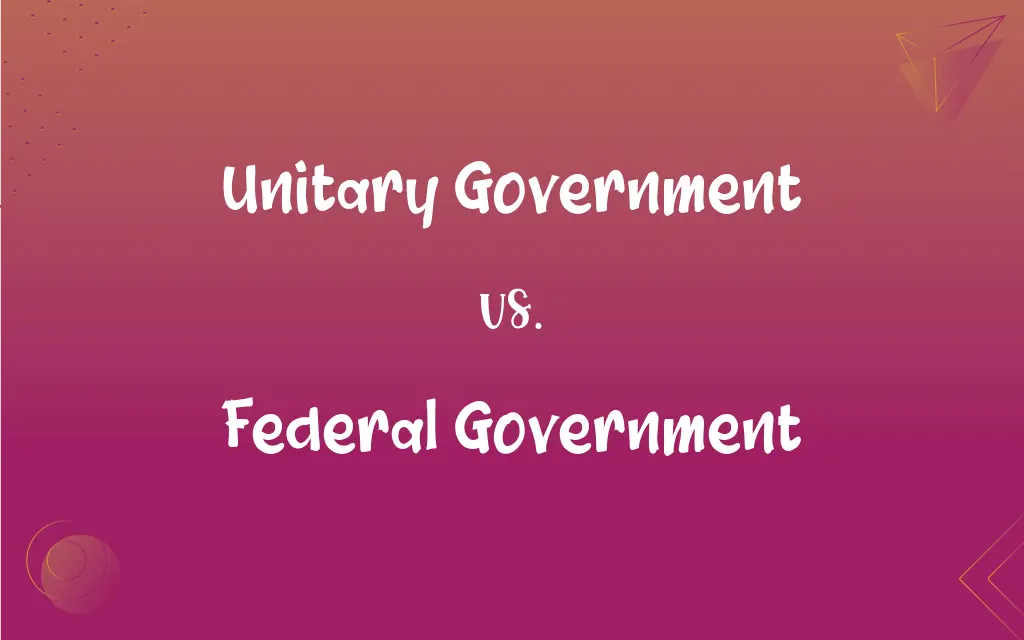
Key Differences
A unitary government operates as a single entity with the central government holding the majority or all political power. The top tier of government oversees, regulates, and is responsible for the entirety of the governing process within the nation. In the realm of a unitary government, all decisions and law-making power are centralized, presenting a consolidated form of governance that can swiftly enact policies, laws, and enforcement across all its territories without the need to negotiate with smaller, sub-entities.
In contrast, a federal government embodies a form of governance where the power is divided between a central authority and various constituent units. This model ensures that government bodies at both the central and local levels have the autonomy to legislate and enforce laws within their jurisdictions. Federal governments typically feature a constitution that outlines the separation and sharing of powers, guaranteeing a degree of independence for each governmental level, and protecting them from encroachment by others.
Unitary government models often prove efficient in terms of policy implementation due to their centralized structure. A decision made by the central government is universally applied throughout the nation, ensuring consistency in policy application, enactment, and enforcement. This singular governance level can directly implement decisions without requiring approval or coordination with subnational units, potentially providing stability and uniformity across regions.
Conversely, federal governments might exhibit complex structures and procedures due to the inherent power-sharing mechanisms. Navigating between various levels of government can pose challenges, especially when consensus is required for nationwide policy implementation. However, this structure also allows for a diversification of power, wherein local governments can cater to the specific needs and demands of their constituencies, providing tailored solutions that a centralized model might overlook or be unable to effectively implement.
The unitary government's primary strength lies in its streamlined and uniform approach, presenting a united front and consistent policies across all territories. This can also manifest as a weakness in scenarios where diverse regions possess unique needs and challenges that a broad, centralized policy fails to address adequately or empathetically.
ADVERTISEMENT
Federal governments, while offering a robust framework for diverse, localized governance, may face challenges related to coordination and consistent policy application across various territories. Here, the strength lies in local autonomy and specificity, while the challenge emerges in navigating varied and potentially conflicting policies across different governmental units.
Comparison Chart
Definition
A single, centralized authority holds power.
Power is divided between central and local entities.
Autonomy of Sub-units
Limited or non-existent.
Constituent units possess legislative autonomy.
Policy Implementation
Uniform policies apply nationwide.
Policies may vary across different territories.
Flexibility
Less flexible in addressing regional specificities.
More adaptable to local or regional needs.
ADVERTISEMENT
Complexity
Typically simpler and more straightforward.
Can be complex due to varied governing bodies.
Unitary Government and Federal Government Definitions
Unitary Government
All regions or states within a unitary government adhere to the legislative decisions made by the central authority.
Despite regional variations, all parts of Italy abide by the laws set by its unitary government.
Federal Government
A federal government divides its power between a central authority and constituent governmental units.
The United States employs a federal government, balancing power between national and state levels.
Unitary Government
A unitary government ensures uniform policy application and law enforcement across the entire nation.
Sri Lanka’s unitary government ensures that national policies are uniformly applied throughout the island.
Federal Government
The constitution in a federal government typically outlines the power division between central and subnational entities.
Germany’s federal government adheres to a constitution that distinctly allocates powers to both federal and state levels.
Unitary Government
A unitary government consolidates all legislative power into a single central authority.
The United Kingdom utilizes a unitary government, controlling policies from a centralized parliament.
Federal Government
Federal governments often require collaboration between different levels of government to enact certain policies.
Canada’s federal government collaborates with its provinces to implement policies effectively across all regions.
Unitary Government
In a unitary government, subnational units possess minimal autonomy, with decisions predominantly made by the central authority.
In France, a unitary government structure presides, directing national policies from Paris.
Federal Government
Federal governments facilitate the ability of regional units to cater to localized needs while still maintaining national cohesion.
Brazil’s federal government enables its states to tailor policies to their specific socio-economic landscapes while adhering to national standards.
Unitary Government
Unitary governments can directly implement policies without requiring localized governmental approval.
Japan’s unitary government can swiftly enforce nationwide policies without consulting regional prefectures.
Federal Government
In a federal government, various territories or states possess their own governing authority and legislative power.
In India, the federal government allows states to create laws pertinent to their specific needs and circumstances.
FAQs
Are most world governments unitary or federal?
The majority of world governments operate on a unitary system, with a smaller number utilizing a federal system.
Can federal governments ensure uniform policies across all regions?
Uniformity can be challenging in federal systems due to state or regional autonomy, leading to potential variations in policies across the nation.
What defines a federal government?
A federal government is characterized by a division of power between a central authority and several regional or state governments, each with its own legislative capabilities.
Is policy implementation faster in a unitary government?
Generally, yes, because unitary governments can implement policies without requiring approval from subnational entities.
Do states have more autonomy in a federal government?
Yes, states or regions typically have significant autonomy and legislative power within a federal government structure.
How does a unitary government manage conflicts between regions?
Unitary governments might address regional conflicts through centralized policies and regulations, potentially utilizing regional administrators or representatives.
Does federalism enable better representation for diverse populations?
Potentially, as the decentralization in federal systems allows for regional governments to represent and legislate based on local needs and demographics.
Can a region secede from a unitary government?
Legal frameworks vary, but secession is generally complex and challenging, often requiring significant legal, political, and social negotiations.
Are there hybrid forms of unitary and federal governments?
Yes, some governments incorporate aspects of both unitary and federal systems, often termed as "quasi-federal" systems, blending centralized and decentralized elements.
How do international relations impact unitary and federal governments differently?
International relations impact all governments but might be navigated differently due to internal structures; for example, unitary governments might enact foreign policies more swiftly due to centralized power, while federal governments might require coordination across various entities.
What is a unitary government?
A unitary government is a system where a single central authority holds all political and legislative power, and any subnational entities are subordinate.
How does a unitary government address regional disparities?
Unitary governments may struggle with regional disparities due to its centralized decision-making, but can establish localized administrative units to address specific needs.
Can a unitary government become a federal government?
Yes, changes in government structures can occur, often driven by political, social, or economic transformations, and require significant legal and constitutional amendments.
Which government type is more complex structurally, federal or unitary?
Federal governments are usually more complex due to multiple levels of autonomous governance and the required coordination between them.
Can a federal government ensure localized needs are met more effectively?
Often, yes. The autonomy of regional governments in a federal system allows for policies to be tailored to local needs and contexts.
How are conflicts between different levels of government resolved in a federal system?
Legal frameworks and constitutions within federal systems often provide mechanisms to manage and resolve conflicts between different levels of government.
In a federal government, can a state create a law that contradicts national law?
Usually, constitutions in federal systems dictate the hierarchies and boundaries of law-making, and states typically cannot legislate in contradiction to national laws in areas of federal jurisdiction.
Can a nation transition from a federal to a unitary government?
Yes, though such a transition involves comprehensive constitutional changes and typically arises from significant socio-political shifts.
Does a unitary government imply a lack of democratic processes?
Not necessarily. Unitary governments can operate within various political frameworks, including democratic ones.
How does law enforcement differ between unitary and federal governments?
In unitary governments, law enforcement policies and practices are generally uniform, while in federal governments, law enforcement can vary across different jurisdictions.
About Author
Written by
Harlon MossHarlon is a seasoned quality moderator and accomplished content writer for Difference Wiki. An alumnus of the prestigious University of California, he earned his degree in Computer Science. Leveraging his academic background, Harlon brings a meticulous and informed perspective to his work, ensuring content accuracy and excellence.
Edited by
Aimie CarlsonAimie Carlson, holding a master's degree in English literature, is a fervent English language enthusiast. She lends her writing talents to Difference Wiki, a prominent website that specializes in comparisons, offering readers insightful analyses that both captivate and inform.

















































